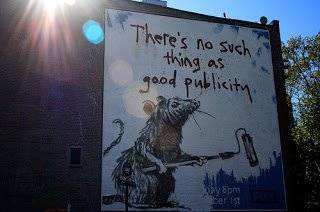This post was first published on November 13th, 2011.
“Right of Publicity” is a common reference to “Personality rights”. It is a right of an individual to control the commercial use of his or her name, image, likeness or identity. It is generally considered a property right as opposed to a personal right. In most of the countries, the Right of Publicity is recognized under statutes.
According to John Lock, “the economic value of identity should be allocated to the celebrity individual because the value is primarily the result of the celebrity’s labor”. The unjust enrichment consideration theory treats misappropriation of identity equivalent to theft of goodwill. The purpose of the right of publicity is to provide an economic incentive for enterprise, creativity, and achievement of an individual.
In India, the right of publicity is governed by common law and accrues to the celebrity’s individual persona. It is a right to a celebrity’s particular distinguishing and identifying characteristics, features, behavior, likeness, image or other unequivocal aspects. These rights are transferable and are generally used as an individual’s right to control and profit from the commercial use of his or her name, likeness, and persona.
Hollywood actors have often approached courts with claims concerning their publicity rights. However, in India actor Rajnikant’s claim in the year 2005 was the first public claim regarding the right of publicity.
The Indian Courts scrutinize the law governing publicity as a right in which an individual’s identity suffers the loss of commercial purpose. Some courts refer to the unauthorized appropriation of an individual’s identity as an invasion of the right of privacy. However, the two bodies of law can be distinguished as follows: while the right of publicity provides the individual with a property right in his or her identity, the right of privacy protects an individual from the publication of private facts that are embarrassing or intimate, or that portrayal of him or her in a false light is offensive. The right of publicity claims usually arise from the publication of information of which the public is already aware; the celebrities thrive on being known and talked about.
In Sourav Ganguly v. Tata Tea ltd., Sourav Ganguly returned from an extremely successful tour of England and Tata Tea Ltd., where he was then employed to promote a tea packet, offered the consumers a chance to congratulate Sourav through a postcard which was inside each packet. The company intended to profit from his popularity and his latest success. Sourav could successfully challenge it in the Court before settling the dispute amicably.
The right of publicity protects all persons’ rights from birth to death and beyond. When the right of publicity extends after death, it is called the post-mortem right of publicity. However, whether the right of publicity extends beyond life is jurisdiction specific. For example, the post mortem right of publicity has only been recently recognized in the US in California and will soon be recognized other American states too. Legal recognition of post mortem rights of publicity usually permits the deceased’s beneficiaries or heirs to control and financially benefit from the use of a deceased’s image and likeness. The news about the movie Dirty Picture having been challenged by the kin of the deceased actress Silk Smita, claiming that the movie does not depict her personality in the right spirits, is first of its kind in India.
As per my analysis, Indian law has not developed much with respect to the Right of Publicity as far as the present situation is concerned. A broader approach is the need of the day, which will add more commercial value to it.
Author: Kumar Anjani



